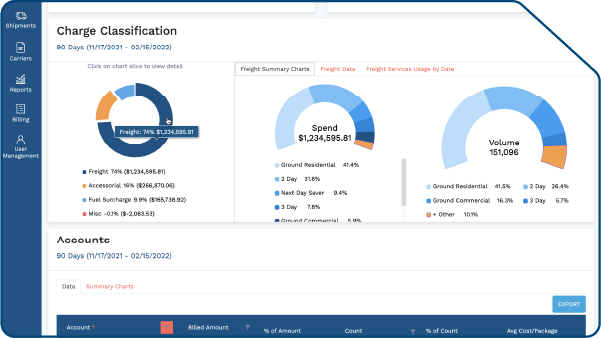Claim and Credit All Eligible Refunds to Your Account
We could not say enough good things about our relationship with ShipSigma. Beyond the initial savings, they continue to find us new angles for savings, set up dashboards specific to our needs, and meet with us quarterly to go through reporting/review savings/new opportunities. ShipSigma has been more than just a service for us, they have been a continuous partner as we navigate the difficulties of controlling our freight costs and holding the vendors accountable.
Tyler B. Vice President of Finance, Leading Global Manufacturer
4 hours. It took less than 4 hours of my time for my company to see half a million in annual savings. No headaches, no feet-dragging negotiations, no confusing documents. It was so easy.
Todd M. Vice President, Food Manufacturer and Distributor
The insights and analytics, ShipSigma provided before and after negotiating our carrier agreements, make it clear we have a long-term partner who is aligned with our company values. The cost modeling and rate simulation let us know the exact savings we would see, down to the last cent. After running our historical data, ShipSigma was able to find us almost 28% in annual shipping savings with our same carrier.
Jonica H. Controller, Market Leading Wine Distributor
Our team managed billions of dollars of various category spend. To have ShipSigma guarantee a savings and then fully execute so that we’re realizing increased EBITDA within 60 days allows us to focus on other strategic opportunities.
Randy H. Chief Procurement Officer, Leading Provider of Pork Products
We thought we had the best rates. We were told we had the best rates. ShipSigma got us better rates. They found us nearly 25% in savings and helped us renegotiate our contract with our carrier. It was just so easy.
Brad M. Chief Operations Officer, Clothing Retailer
The parcel invoice audit was a lifesaver for us. The team at ShipSigma monitored the weekly audit and noticed that instead of shipping air, over 60% of our packages could have traveled ground with no delay in arrival. They saved us more money than we had ever saved in our manual audit process.
Julie F. Chief Financial Officer, Industry Leading Retailer
Our Parcel Audit Services


Hassle Free Auditing
Our fully automated invoice auditing platform identifies, submits, and verifies claims on your behalf without you having to lift a finger.


50+ Audit Points
Our ai-powered platform runs a weekly invoice audit identifying late shipments, invalid surcharges, lost/damaged packages, and more.


Contract Compliance
Every week, you'll receive a report identifying incidents of overcharging, errors, service failures, filed claims, and refunds within your agreement.
Save Big with our Fully Automated Parcel Invoice Audit
Our audit platform automatically identifies, submits, and verifies claims on your behalf. No upfront costs. No risk.
Freight and Parcel Invoice Audit
As of right now, higher shipping costs are here to stay. According to Bloomberg, shipping rates are 25-50% higher than they were in 2020. But what about your shipping costs? How do you make sure your carrier is holding up their end of the deal?
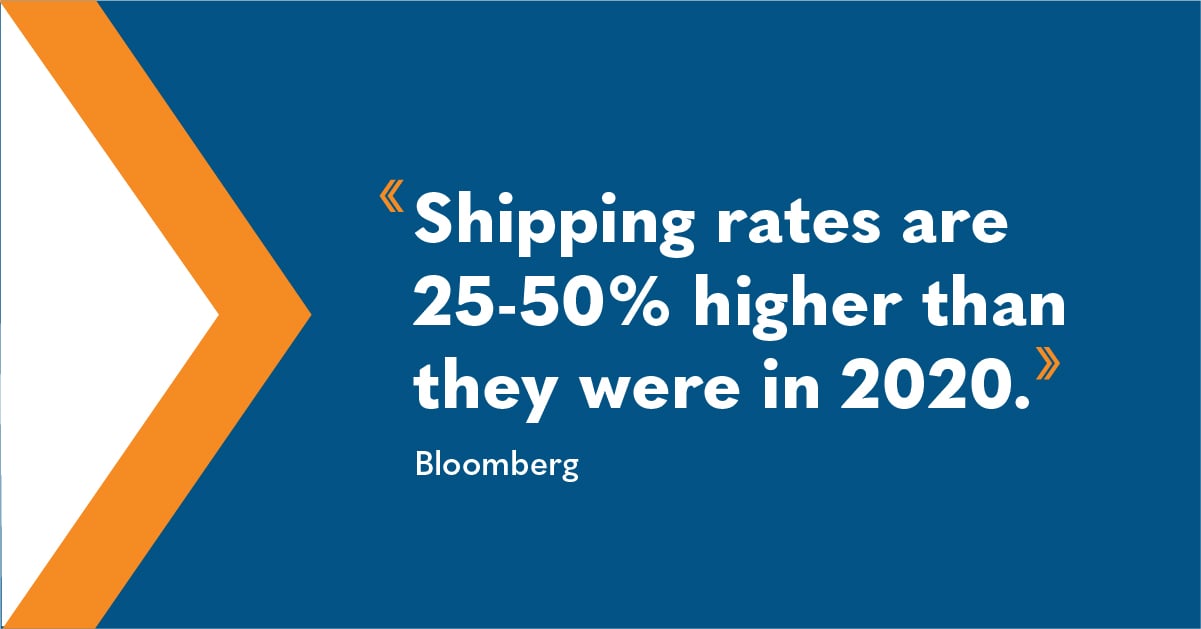
Conducting a thorough parcel or freight audit gives you the ability to discover discrepancies in your invoices and catch other costly errors made by your carrier. In this article, we wanted to give you an in-depth overview of freight and parcel invoice auditing and discuss how you can use the data uncovered from the audit to lower your overall shipping costs.
The truth is, if everyone has the best shipping rates, then no one has the best shipping rates.
Let’s get started.
What Is the Difference Between Parcel and Freight?
In the simplest of terms, parcel audits specifically focus on boxes that are shipped to multiple locations and labeled individually, while freight audits focus on a collection of boxes shipped in one go. Parcels are often referred to as packages, although both terms can be used interchangeably. Parcel shipping has dimensional requirements as well, if a package is over 108 inches by 165 inches, then small parcel shipping companies will categorize those packages as freight.
Freight shipping is dedicated to large quantities of boxes or cargo that are sent as a unit to the same location via truck, cargo plane, ship, or train. Freight cargo loads are placed on pallets and are categorized by the amount of space they take up in the shipping container. There are three freight load categories:
- Full truckloads
- Less than truckloads (LTL)
- Partial truckload shipments
Although parcel and freight are different, the audit processes for both are fundamentally the same.
What is a Freight Invoice Audit? What are Parcel Audits?
Freight and parcel audits are when a company's shipping bills and invoices are reviewed extensively to locate incidents of overcharging and service failures associated with errors in the shipping process. The main goal of freight and parcel auditing services is to decrease a company’s overall shipping costs. Put simply, a parcel or freight audit will identify when, where, and how you are being overcharged.
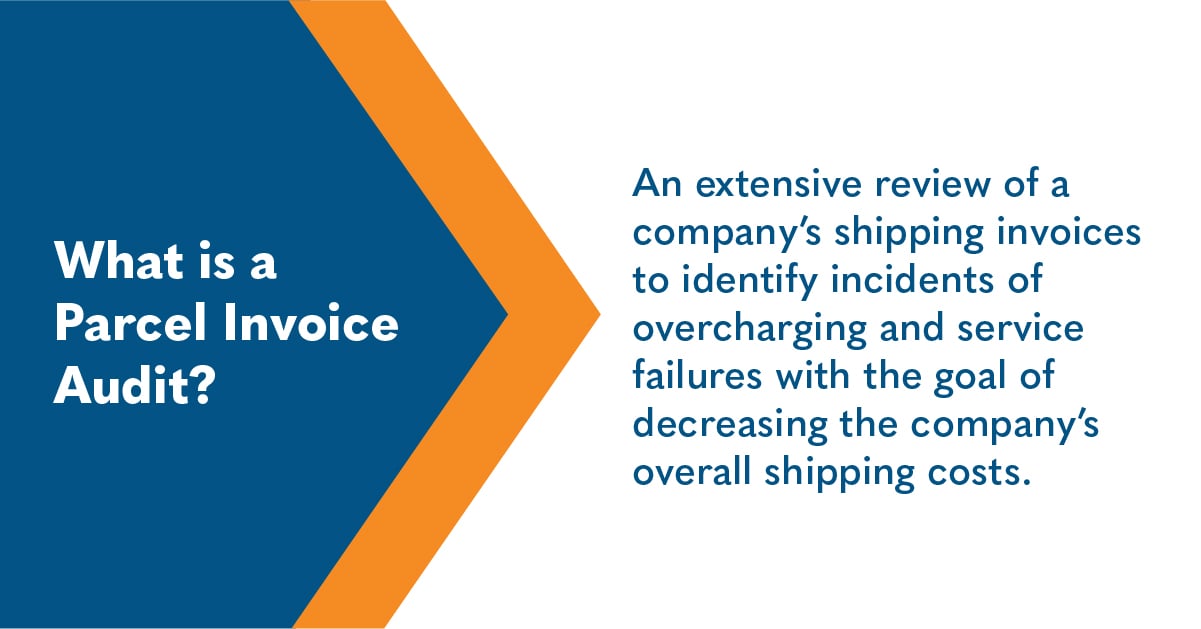
Why is a Freight or Parcel Audit Important?
Conducting a freight or parcel audit does more than simply save you money up-front, it also allows you to gain insight into where your shipping carriers are dropping the ball and failing to deliver on time. Freight and parcel audit services are extremely valuable partners when it comes to saving on shipping costs and evaluating your carrier’s performance.
Parcel or freight audits analyze various aspects of the shipping process including:
- Measuring the distance to be traveled.
- Measuring the different levels of commitment for service delivery.
Here is a breakdown of our live freight audit and operational support processes.
Live Audit: Your shipments are audited in real-time. Instant rate changes, re-weighs, re-classes are flagged, and we work immediately to reconcile the discrepancy.
Operational Support: You and your carriers have access to a knowledgeable staff to assist with booking loads and day-to-day operational questions. We act as an extension of your team and are vested in your success.
Dedicated Team: You have a designated team of professionals assigned to your account to help with your specific freight-related issues.
Track and Trace Shipments: Our operational team reviews shipments daily and works with the carrier on any late shipments and provides up-to-date information in the TMS (Transport Management System).
Carrier Payment: Our Recon software system sends a consolidated invoice every week for the prior week’s shipments. We pay carriers on your behalf, so you only send one
payment to Recon. We also provide vouchers if it is preferred.
Monthly Accrual: Real-time data is available in our TMS. We pull a monthly shipment file and accrue for any shipments that you have not been billed for previously.
Types of Freight Audit and Parcel Audit
Auditing your parcel or freight payments is a proactive and useful way to reduce your costs and ensure that your shipping partners are truly honoring your contract. Before your audit begins, you should have a solid grasp of the three main types of audit. Let’s discuss each audit option in detail:
Manual Audits
A manual audit means that you or a member of your staff performs the audit internally and by hand. Although this might seem like an easy and affordable option at first glance, it’s extremely time-consuming and can cost you more in the long run. Handling invoices and auditing manually can be done in very simplistic cases, but this process is prone to human error. Because the auditing process can quickly become quite complex, manual audits are not generally recommended. This is mainly because if a mistake is made or if something is missed then you could end up losing money. However, if your company ships at a fairly low volume then this method could be a manageable option for you.
Parcel or Freight Audit Software
The second option is to purchase a license for a shipping auditing software to help your staff manage the information they need to perform an audit. Software will help you organize your invoices, keep track of payments, and gather data. This process is more expensive than a manual audit, but it’s also more accurate and easier to manage. However, a lot goes into setting up your software and integrating it into your workflow. You also have to dedicate time to making sure that your invoice information is entered into your system regularly and that you are analyzing the data.
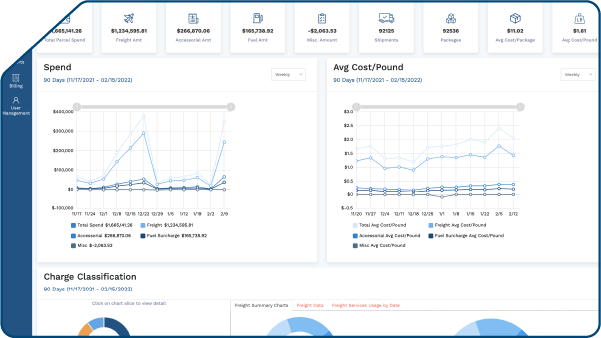
Third-Party Parcel or Freight Auditing Services
A good freight and logistics consulting partner, like ShipSigma, possesses the automated technology, data processing and experience needed to analyze and organize your carrier invoices into manageable reports that elaborate on key performance indicators. These actionable shipping insights and analytics allow you to better understand where your money is going and empower you to make more informed decisions regarding your carrier choices. Additionally, ShipSigma will file for the claims and refunds systematically and have them applied directly against future invoices. In short, we’ll handle the data analytics while you focus on what you do best, creating and selling your products.
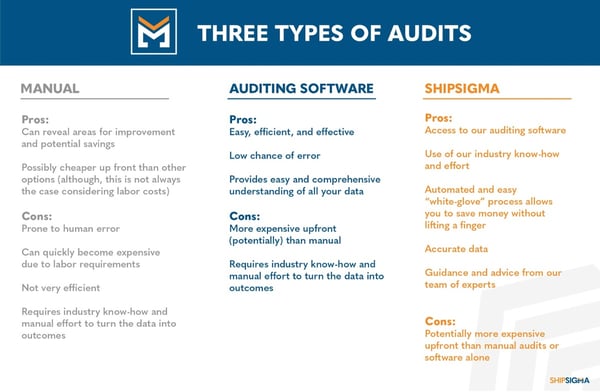
Questions to Ask Before Choosing A Third-Party Freight/Parcel Auditing Service:
- What specific insights will I gain from your analysis of my shipping data?
- How long have you been operating in the market?
- How do you process information that is entered manually by carriers?
- How much, on average, do you save your partners?
- How is your technology structured? What makes it better than other systems?
- What is your customer service process?
- Is all of the data gathered in one system?
- What additional tools do you provide?
- Can you handle our projected growth and scale up, if necessary?
ShipSigma’s Actionable Data Insights: Audit Data You Can Trust
Our unique freight and parcel auditing technology allows us to review and analyze your parcel invoices and compile extensive data insights into your shipping costs and processes. Since this process is completely electronic, the risk of human error is entirely eliminated, making this a more efficient and accurate auditing process compared to conducting a parcel audit through a human auditor.
The expedited process and lack of human error open the door for more refunds and decreases in our overall shipping costs. We’re armed with real time parcel invoice and live freight data which allow us to better analyze and optimize your shipping methods to keep you one step ahead of your competition. Using our AI-driven technology and knowledge of the shipping industry, we are able to:
- Analyze customer parcel or freight invoices for invalid or irregular charges.
- Audit parcel or freight invoices by interpreting and applying carrier rate provisions and customer contracts.
- Provide weekly and monthly reports to customers showing all valid charges as well as recovered credits.
- Track carrier compliance and monitor service interruptions.
What are the 7 Objectives in the Audit Process?
In our ShipSigma parcel and freight auditing processes we use our AI technology to sift through mountains of shipping data - all charges, refunds, and carrier credits are cataloged and analyzed for errors or violations. Here are our top 7 objectives of auditing:
- Identify late deliveries: The shipment was delivered past its set delivery date.
- Catch lost or damaged shipments: You were billed for a shipment, but the goods were lost or damaged.
- Identify incorrect charges: You were hit with a residential delivery surcharge, but it is actually a commercial address.
- Find duplicate charges: A shipment was billed multiple times.
- Catch incorrect address corrections: The carrier charges fees for an address correction that was not necessary or was initially correct.
- Find faulty dimensional weight charges: The carrier used the wrong dimensions.
- Identify incorrect rates: The carrier failed to apply a discount listed in your agreement.
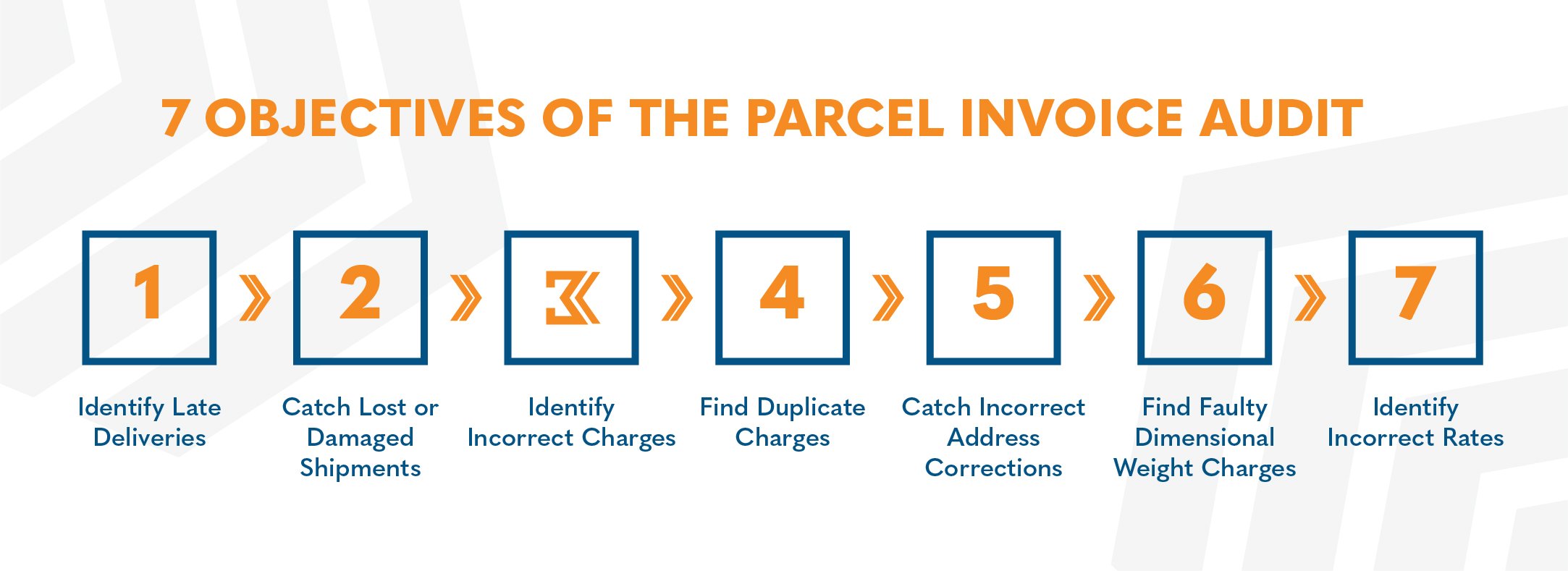
Invoice Audit Checklist
To give you some more information, we created this helpful checklist to break down each step of our ShipSigma auditing process.
- Collect your invoices. To begin your audit process, we need to access your carrier invoices.
- Organize your expenses into categories. After you have given us access to your invoices we will then begin to separate them by category. Typically, our system would group them by the carrier and sort the invoices from newest to oldest. This helps us get a more accurate and holistic picture of your invoice data.
- Identify your key metrics. After our system has logged and organized all of your invoices, we begin to analyze the data. Our system establishes key metrics throughout this process to correctly identify where your money is going and how it is being used.
- Analyze the data. This is when our system evaluates the data to see where the mistakes are happening and how much they are costing your business. During our fully automated data analysis process, there are various data points our system reviews to ensure that you are being charged appropriately and that your shipping carrier is as efficient as possible. This information we collect not only saves you money but also helps inform your future decision-making. Some factors we take into consideration include:
- Wrong Addresses - This remains one of the most common shipping mistakes. If your shipping carrier sends your goods to the wrong destination, then this can result in costly and time-consuming efforts to track down shipments. An audit reveals instances where this happens and how often.
- Unnecessary Increases In Pricing - You don’t need us to tell you that shipping prices can increase dramatically at a moment's notice - especially when the price of fuel increases. Although some of these price increases are unavoidable, an audit can reveal exactly where the money is going and help you identify ways to minimize spending even when you are faced with volatile price hikes.
- Review your rate. After going through all of the potential errors in your invoices and analyzing the data, our system logs all of your charges and determines if you are being billed the correct amount.
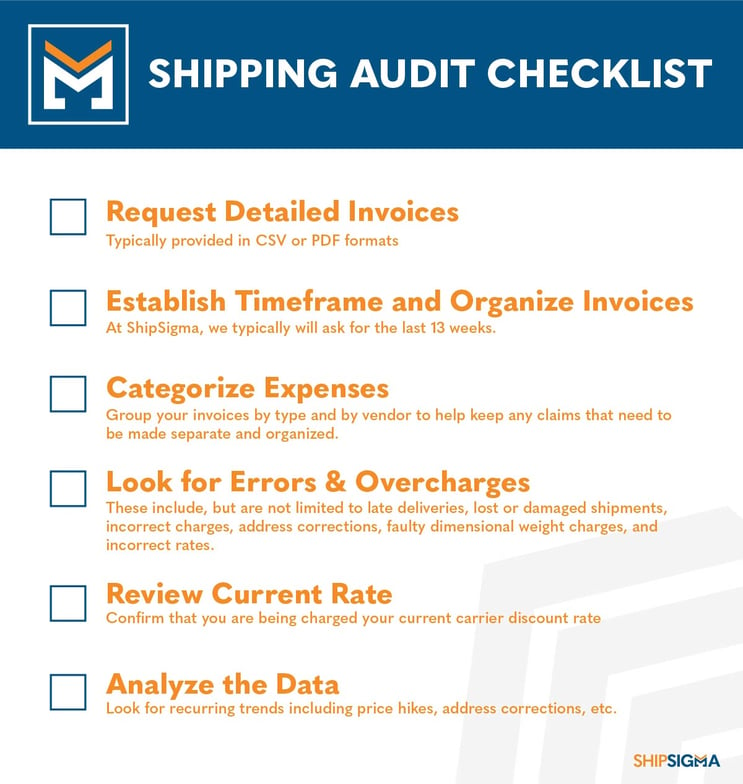
Tips for Negotiating Contracts with Carriers After Your Audit
We know your carrier representative has told you that you have the best rates, but if significant errors are discovered during the auditing process you will need to negotiate. You can’t negotiate the best rates without specialized insight into your specific costs - which is exactly what ShipSigma offers. We use your own data plus our technology to arm you with the information you need to cut down your shipping costs.
Our superior technology isn't the only thing working in our favor when it comes to providing advice for negotiating with shipping carriers. Our team is made up of experts from the shipping and logistics world - some of us used to negotiate for shipping carriers themselves. The point is, your experience combined with our insights into your data and support from our team will ensure that you get the shipping rates you deserve.
Things To Keep In Mind During Negotiations After Your Audit
Sometimes shipping carrier contract negotiation can feel overwhelming, but fool-proof negotiation tactics and stellar data can help guide the way. Having everything laid out and backing up your arguments with numbers is the best way to succeed when negotiating your rates with your shipping carrier. Aside from actionable data insights, there are additional measures you can take to enhance your negotiation techniques. Let’s explore some of these methods below.
Conduct thorough research
Take some time to really dive deep and research your carrier. Monitor the live market data, consider how the economy is affecting business, and ask lots of questions. Having the data from your audit is extremely helpful when it comes to the research portion of negotiations because it helps you substantiate your claims. If you do your research before negotiations then you will have a better understanding of your carrier’s position and how this might affect your contract.
Be prepared to compromise
As is the case with most things, everyone can’t always get what they want in these negotiations. With this in mind, you should really evaluate what matters to you most and decide what you are prepared to give up and what you are prepared to fight for.
Honesty and transparency are key
Lack of transparency is detrimental to all negotiations, for all involved parties. Having accurate data to back up your claims during negotiations is paramount when it comes to transparency. Your audit data fosters transparency on two levels:
- Reveal instances in which your carrier has not been honest or transparent with you.
- Proves that your claims are valid, and substantiates your requests throughout negotiations.
Your carrier needs to have a comprehensive understanding of where you stand and what your needs are. If your carrier is reluctant to accept the data you are presenting then that is a sign that you may want to limit further dealings with them in the future.
Properly assess the risks and liabilities
You can’t risk missing any loose ends or leaving any stones unturned during negotiations. You should always clearly define your limitations and tolerances when it comes to risks and liabilities. Analyzing the data from your audit greatly helps in this process. By having a clear idea of where problems arise and what drives price increases, you can properly evaluate your relationship with your carrier. The data collected during your audit will also allow you to determine if price increases are caused by mismanagement on behalf of your carrier or if outside factors are the key contributors. Audits prevent you from being surprised and allow you to know when to move on from a carrier or renegotiate your contract.
Only seek out and maintain mutually beneficial partnerships.
Successfully negotiating does not mean you’re allowed to get greedy - it’s more about relationship building. A good partnership between you and your shipping carrier means that you both are vested in each other's success. The right shipping carrier will accept the data you present to them from your audit and move to make changes to ensure that your partnership remains intact. On your end of things, it’s always good practice to consider your carrier’s point of view. Be flexible where you can and where it makes sense. For example, you could offer non-monetary terms in the contract that benefit your carrier, like flexible scheduling. It really comes down to maintaining a balance - if you go out of your way to develop and maintain a strong partnership with your carrier, then they are more likely to go out of their way to help you as well.
Save More With ShipSigma’s Intelligent Audit Services
At ShipSigma, our mission is simple. We’re here to save you money. Using your own data with our technology, we offer detailed and specialized insight into your specific shipping costs. We take your raw invoice data and layer on the cost of the carrier to service your account - this allows us to see all of the data that is outside of your view. We’re not better negotiators; we’re just backed by AI-driven technology that allows us to see live market data. What’s the result? You can see exactly how much you’re saving — package per package.
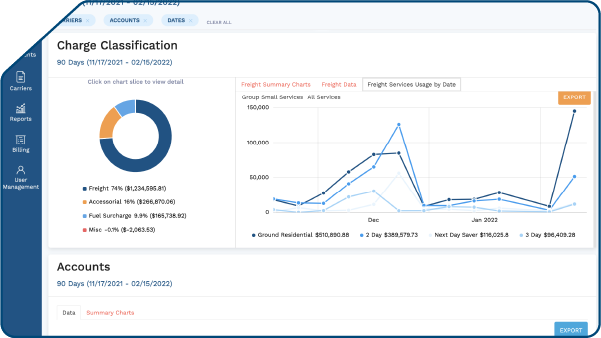
Within a month of partnering with us, you’ll see visible, meaningful results from our services. We will provide you access to detailed reports with tracking-number-level details to know exactly how much money you’re saving, down to the penny. Ready to start saving? Connect with us today.













